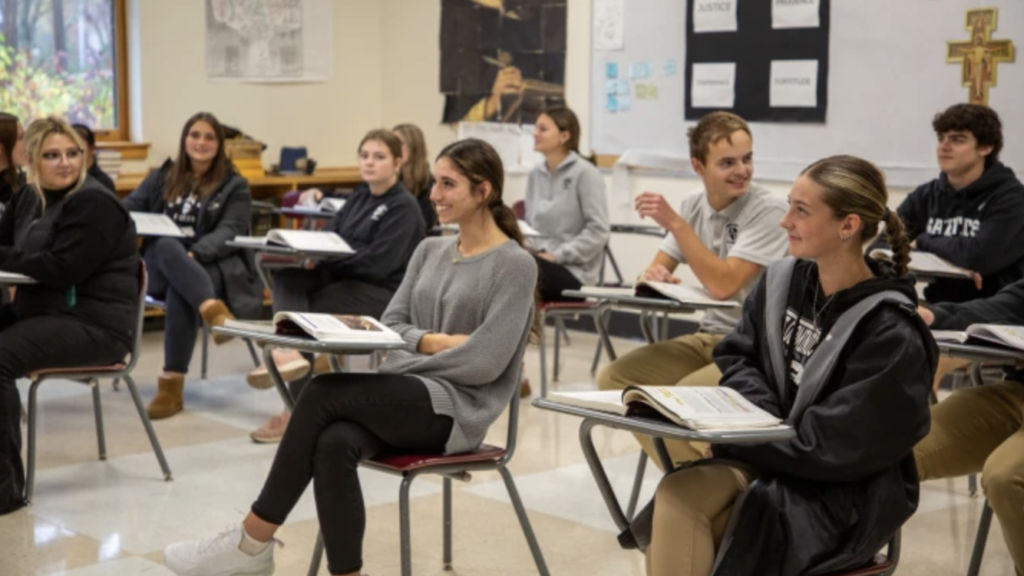Catholic parents who live in rural Maine — far from any public schools — are challenging a state law that excludes most faith-based schools from Maine’s rural tuition assistance program.
Maine’s tuition assistance program — the second-oldest in the nation — is designed to help rural families attend private school in areas that do not have public schools. In 1982, Maine began excluding faith-based private schools, leading to a Supreme Court case that struck down the exclusion as religious discrimination in 2022.
Though the landmark 2022 U.S. Supreme Court decision Carson v. Makin affirmed that the “sectarian exclusion” violates the free exercise clause because it excludes schools on the basis of their religious exercise, Maine state officials quickly passed a law that in effect excluded most religious schools. This law most directly affects the rural families that are now unable to use the tuition program to send their children to local Catholic schools.
Catholic parents Kevin and Valori Radonis, along with the local Catholic school St. Dominic Academy, are challenging the state law in federal appeals court. Another couple, Daniel and Nancy Cronin, live in an area without a public school and want their son, who has dyslexia, to attend St. Dominic’s so he can receive necessary academic support.
The Radonises believe the state is “cheating” them out of the choice to send their children to Catholic school “by cutting faith-based schools out of Maine’s tuition program.”
“As Catholics, we want to raise our children in an environment that teaches them to put their faith at the heart of everything they do,” they said in a statement. “We pray the court puts an end to this exclusion once and for all.”
The latest legal challenge against the Maine law highlights a concern that for participating schools, Maine’s new law would give the Maine Human Rights Commission the final word on admissions, conduct speech, and policies about Catholic beliefs on marriage, gender, and family life. This effectively prevents Catholic schools from being able to participate in the program.
“Three years ago in the Carson case, the Supreme Court ordered Maine to stop leaving families like the Radonises out in the cold,” Adèle Keim, senior counsel at Becket, said in a press release. “But Maine wouldn’t listen. Now Maine wants to have bureaucrats in Augusta tell St. Dominic how Catholic it can be.”
The tuition program has been embroiled in legal challenges in recent years as the state continues to exclude most faith-based schools, preventing rural families who cannot access public schools.
In an appeal last year against the new law, lawyers called it a “poison pill” law and alleged that it targeted religious schools. Maine Attorney General Aaron Frey — a proponent of the law — said in 2022 that he intended to “ensure that public money is not used to promote discrimination, intolerance, and bigotry.”
Notably, the law applies to in-state private schools but not to out-of-state boarding schools that receive Maine funds from the same program.
“Maine should drop its newest effort to ‘end run’ the Supreme Court and let St. Dominic get back to serving the Maine families that need it most,” Keim said.
A ruling from the court is expected early this year.

